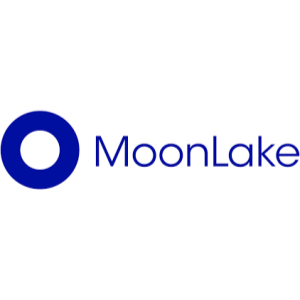MoonLake Immunotherapeutics inks three-year technology partnership with Komodo Health to advance research on inflammatory skin and joint conditions
MoonLake To Tap Into Komodo’s Technology and Real-World Data To Unlock
the Full Potential of Its Next-Gen Nanobody® Therapy
Through this multiyear technology partnership, MoonLake will utilize Komodo’s Healthcare Map and platform technologies to enable data-driven decision-making across its clinical operations, medical, marketing, and market access teams. Komodo’s data and technology applications will support MoonLake’s in-depth market research, clinical trial site selection, go-to-market strategies, and patient journey mapping — all aimed at accelerating the development of new treatment options and improving outcomes for patients with inflammatory skin and joint diseases.
Tino Anthamatten, VP, Marketing & Market Access & Pricing, MoonLake Immunotherapeutics, commented: “We need an experienced technology partner that can help accelerate our disease insights for our clinical, medical, and commercial endeavors. Komodo’s data-driven intelligence is expected to be a critical tool as we work toward commercialization and delivering transformative therapies to patients.”
Recent research underscores the challenges that Life Sciences companies face in generating data-driven intelligence that can support decision-making across the product life cycle. On average, it takes seven months to identify and integrate data sources before teams can even begin to generate insights.
Using Komodo’s software applications and Healthcare Map, MoonLake was able to identify important findings, presented at its R&D day last month, related to the HS market. The real-world analysis of the
“We are thrilled to support MoonLake’s efforts to advance scientific innovation and gain a deeper understanding of patient journeys and unmet needs for people living with inflammatory diseases,” said Web Sun, President and Co-Founder, Komodo Health. “As MoonLake expects to commence phase 3 trials, we look forward to helping their teams utilize data and analytics to evaluate the market, develop their go-to-market and commercialization strategy, and, most important, help quickly bring its Nanobody® therapy to market, once approved, for patients who need it most.”
###
About MoonLake Immunotherapeutics
MoonLake Immunotherapeutics is a clinical-stage biopharmaceutical company unlocking the potential of sonelokimab, a novel investigational Nanobody® for the treatment of inflammatory disease, to revolutionize outcomes for patients. Sonelokimab inhibits IL-17A and IL-17F by inhibiting the IL-17A/A, IL-17A/F, and IL-17F/F dimers that drive inflammation. The company’s focus is on inflammatory diseases with a major unmet need, including hidradenitis suppurativa and psoriatic arthritis – conditions affecting millions of people worldwide with a large need for improved treatment options. MoonLake was founded in 2021 and is headquartered in
About Komodo Health
Komodo Health is a technology platform company creating the new standard for real-world data and analytics by pairing the industry’s most complete view of patient encounters with enterprise software and machine learning that connects the dots between individual patient journeys and large-scale health outcomes. Across Life Sciences, payers, providers, and developers, Komodo helps its customers unearth patient-centric insights at scale — marrying clinical data with advanced algorithms and AI-powered software solutions to inform decision-making, close gaps in care, address disease burden, and help enterprises create a more cost-effective, value-driven healthcare system. For more information, visit Komodohealth.com.
About Psoriatic Arthritis
Psoriatic arthritis (PsA) is a chronic and progressive inflammatory arthritis associated with psoriasis primarily affecting the peripheral joints. The clinical features of PsA are diverse, involving pain, swelling, and stiffness of the joints, which can result in restricted mobility and fatigue. PsA occurs in up to
About Hidradenitis Suppurativa
Hidradenitis suppurativa (HS) is a severely debilitating chronic skin condition resulting in irreversible tissue destruction. HS manifests as painful inflammatory skin lesions, typically around the armpits, groin, and buttocks. Over time, uncontrolled and inadequately treated inflammation can result in irreversible tissue destruction and scarring. The disease affects ~
About Nanobodies®
Nanobodies® represent a new generation of antibody-derived targeted therapies. They consist of one or more domains based on the small antigen-binding variable regions of heavy-chain-only antibodies (VHH). Nanobodies® have a number of potential advantages over traditional antibodies, including their small size, enhanced tissue penetration, resistance to temperature changes, ease of manufacturing, and their ability to be designed into multivalent therapeutic molecules with bespoke target combinations.
The terms Nanobody® and Nanobodies® are trademarks of Ablynx, a Sanofi company.
Cautionary Statement Regarding Forward-Looking Statements
This press release contains certain “forward-looking statements” within the meaning of the
Forward-looking statements are based on current expectations and assumptions that, while considered reasonable by MoonLake and its management, as the case may be, are inherently uncertain. New risks and uncertainties may emerge from time to time, and it is not possible to predict all risks and uncertainties. Actual results could differ materially from those anticipated in such forward-looking statements as a result of various risks and uncertainties, which include, without limitation, risks and uncertainties associated with MoonLake’s business in general and limited operating history, difficulty enrolling patients in clinical trials, and reliance on third parties to conduct and support its clinical trials, and the other risks described in or incorporated by reference into MoonLake’s Annual Report on Form 10-K for the year ended December 31, 2023 and subsequent filings with the Securities and Exchange Commission.
Nothing in this press release should be regarded as a representation by any person that the forward-looking statements set forth herein will be achieved or that any of the contemplated results of such forward-looking statements will be achieved. You should not place undue reliance on forward-looking statements in this press release, which speak only as of the date they are made and are qualified in their entirety by reference to the cautionary statements herein. MoonLake does not undertake or accept any duty to release publicly any updates or revisions to any forward-looking statements to reflect any change in its expectations or in the events, conditions or circumstances on which any such statement is based.
View source version on businesswire.com: https://www.businesswire.com/news/home/20240410438883/en/
Media:
media@komodohealth.com
MoonLake Immunotherapeutics Media
Patricia Marques de Sousa
media@moonlaketx.com
ICR Consilium
Mary-Jane Elliott, Namrata Taak, Ashley Tapp
Tel.: +44 (0) 20 3709 5700
moonlake@consilium-cooms.com
Source: Komodo Health








